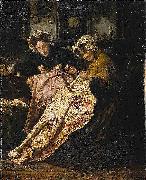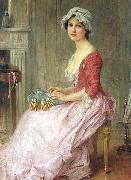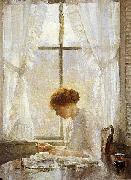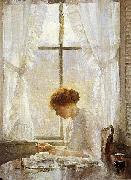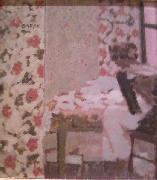Wholesale Oil Painting Reproductions No Minimum and Door to Door! |
|||||||||||
|
|
|||||||||||

|
|||||||||||
|
|
|
||||||||
All Eugene de Blaas Oil Paintings |
||||||||
|
|
||||||||
|
|
||||||||
|
Artist Introduction: Austrian Academic Painter, 1843-1931 |
||||||||
|
|
||||||||
|
THe Seamstress Painting ID:: 34307 |
mk92
Signed and dated 1901 oil on panel
31 1/2x17 1/2in
|
|||||||
Height Width |
INS/CM Quality |
|||||||
|
X |
| |||||||
|
|
||||||||
All unknow artist Oil Paintings |
||||||||
|
|
||||||||
|
|
||||||||
|
Artist Introduction: |
||||||||
|
|
||||||||
|
|
The Seamstress Painting ID:: 68628 |
Technique English: Oil on panel
Dimensions 5 7/8 x 4 3/4 in. (14.9 x 12.1 cm)
|
||||||
Height Width |
INS/CM Quality |
|||||||
|
X |
| |||||||
|
|
||||||||
All Charles-Amable Lenoir Oil Paintings |
||||||||
|
|
||||||||
|
|
||||||||
|
Artist Introduction: (22 October 1860 - 1926) was a French painter. Like his mentor, William-Adolphe Bouguereau, he was an academic painter and painted realistic portraits as well as mythological and religious scenes. His artistic career was so prestigious that he won the Prix de Rome twice and was awarded the Legion d'honneur.
Lenoir was born in Châtellaillon, a small town just outside of La Rochelle. His mother was a seamstress and his father was a customs officer. When he was young, his father was reassigned and the family moved to Fouras. He did not start out in life as an artist, but instead began his education at a teachers' college in La Rochelle. Upon graduation, he worked as a teacher and supervisor at the lycee in Rochefort.
In August 1883 he was accepted into the École des Beaux-Arts de Paris, he also joined the Academie Julian where he was a student of William-Adolphe Bouguereau and Tony Robert-Fleury. Lenoir made his artistic debut at the Salon in 1887 and continued to exhibit there until his death. He was quickly noticed in the art world, and in 1889 won the Second Prix de Rome for his painting, Jesus et le paralytique (Jesus and a Sick Man with Palsy), and he won the First Prix de Rome the following year for Le Reniement de Saint Pierre (The Denial of St. Peter).His awards did not stop with the Prix de Rome; works shown at the Salons also won prizes, and he received a third-class medal in 1892 for Le Grenier a Vingt Ans (The Garret at twenty years) and a second-class medal in 1896 for La Mort de Sappho (The Death of Sappho). |
||||||||
|
|
||||||||
|
|
The Seamstress Painting ID:: 72863 |
Oil on canvas
cjr |
||||||
Height Width |
INS/CM Quality |
|||||||
|
X |
| |||||||
|
|
||||||||
All Joseph Decamp Oil Paintings |
||||||||
|
|
||||||||
|
|
||||||||
|
Artist Introduction: 1858-1923
Joseph Rodefer DeCamp (November 5, 1858 - February 11, 1923) was an American painter.
Born in Cincinnati, Ohio, he studied with Frank Duveneck in that city. In the second half of the 1870s he went with Duveneck and fellow students to the Royal Academy of Munich, then spent time in Florence, Italy, returning to Boston in 1883.
He became known as a member of the Boston school led by Edmund Charles Tarbell and Emil Otto Grundmann, focusing on figure painting, and in the 1890s adopting the style of Tonalism. He was a founder of the Ten American Painters, a group of American Impressionists, in 1897.
A 1904 fire in his Boston studio destroyed several hundred of his early paintings, including nearly all of his landscapes.
He died in Boca Grande, Florida. |
||||||||
|
|
||||||||
|
|
The Seamstress Painting ID:: 83817 |
Date 1916(1916)
Medium English: Oil on canvas
Dimensions 92.71 x 71.12 cm (36.5 x 28 in)
cjr |
||||||
Height Width |
INS/CM Quality |
|||||||
|
X |
| |||||||
|
|
||||||||
All Joseph Decamp Oil Paintings |
||||||||
|
|
||||||||
|
|
||||||||
|
Artist Introduction: 1858-1923
Joseph Rodefer DeCamp (November 5, 1858 - February 11, 1923) was an American painter.
Born in Cincinnati, Ohio, he studied with Frank Duveneck in that city. In the second half of the 1870s he went with Duveneck and fellow students to the Royal Academy of Munich, then spent time in Florence, Italy, returning to Boston in 1883.
He became known as a member of the Boston school led by Edmund Charles Tarbell and Emil Otto Grundmann, focusing on figure painting, and in the 1890s adopting the style of Tonalism. He was a founder of the Ten American Painters, a group of American Impressionists, in 1897.
A 1904 fire in his Boston studio destroyed several hundred of his early paintings, including nearly all of his landscapes.
He died in Boca Grande, Florida. |
||||||||
|
|
||||||||
|
|
The Seamstress Painting ID:: 88262 |
Öl auf Leinwand
Dimensions 92.71 x 71.12 cm (36.5 x 28 in)
cyf |
||||||
Height Width |
INS/CM Quality |
|||||||
|
X |
| |||||||
|
|
||||||||
All Edouard Vuillard Oil Paintings |
||||||||
|
|
||||||||
|
|
||||||||
|
Artist Introduction: 1868-1940
French
Edouard Vuillard Galleries
Jean-Edouard Vuillard, the son of a retired captain, spent his youth at Cuiseaux (Saone-et-Loire); in 1878 his family moved to Paris in modest circumstances. After his father\'s death, in 1884, Vuillard received a scholarship to continue his education. In the Lycee Condorcet Vuillard met Ker Xavier Roussel (also a future painter and Vuillard\'s future brother in law), Maurice Denis, musician Pierre Hermant, writer Pierre Veber and Lugne-Poe. On Roussel\'s advice he refused a military career and entered the Ecole des Beaux-Arts, where he met Pierre Bonnard.
In 1885, Vuillard left the Lycee Condorcet and joined his closest friend Roussel at the studio of painter Diogene Maillart. There, Roussel and Vuillard received the rudiments of artistic training. |
||||||||
|
|
||||||||
|
|
The Seamstress Painting ID:: 92386 |
Date 1893(1893)
Medium Oil on board
Dimensions 11 X 10 in (27.9 X 25.4 cm)
TTD |
||||||
Height Width |
INS/CM Quality |
|||||||
|
X |
| |||||||
|
|
||||||||
|
Prev Next
|
||||||||
|
|
||||||||
|
Related Paintings to Edouard Vuillard :. |
||||||||
|
|
||||||||
|
CONTACT US |


